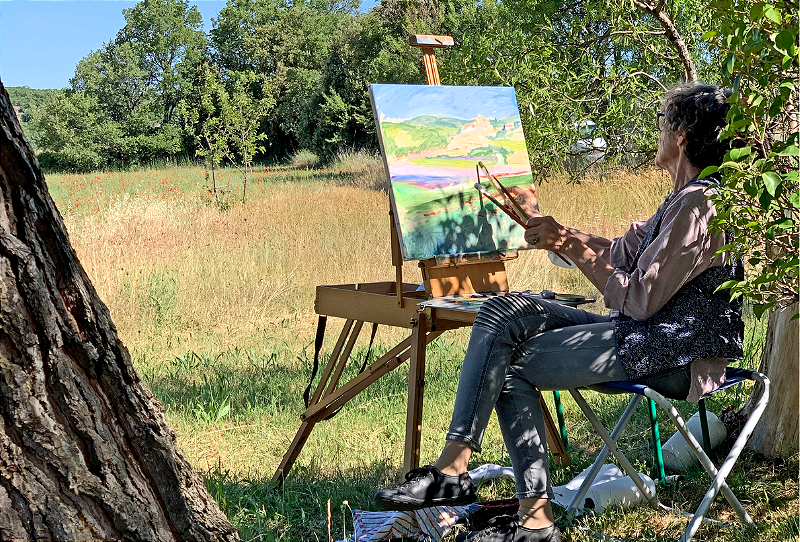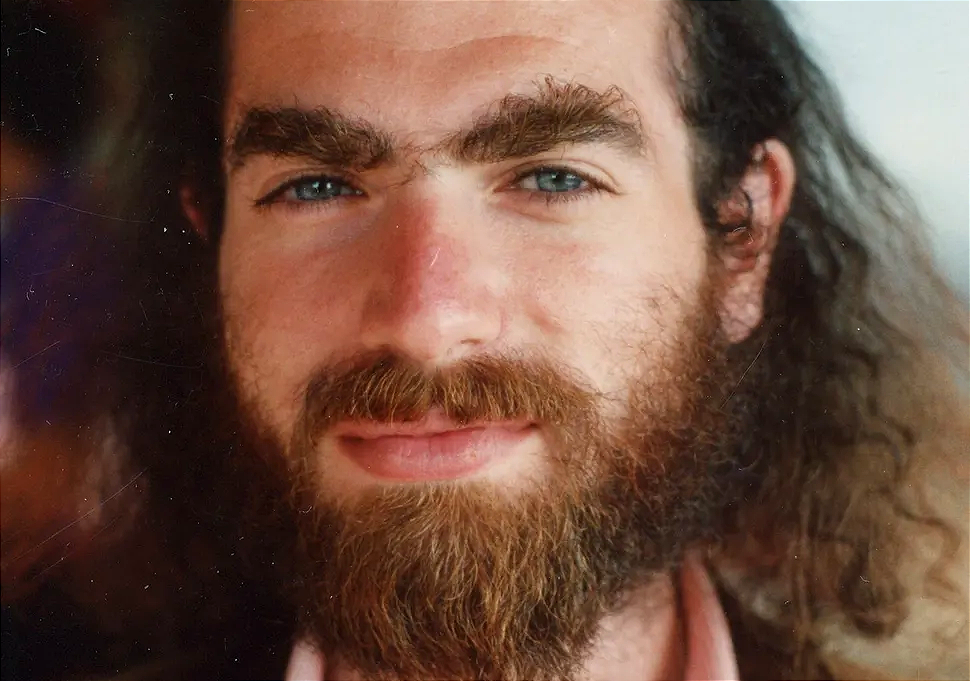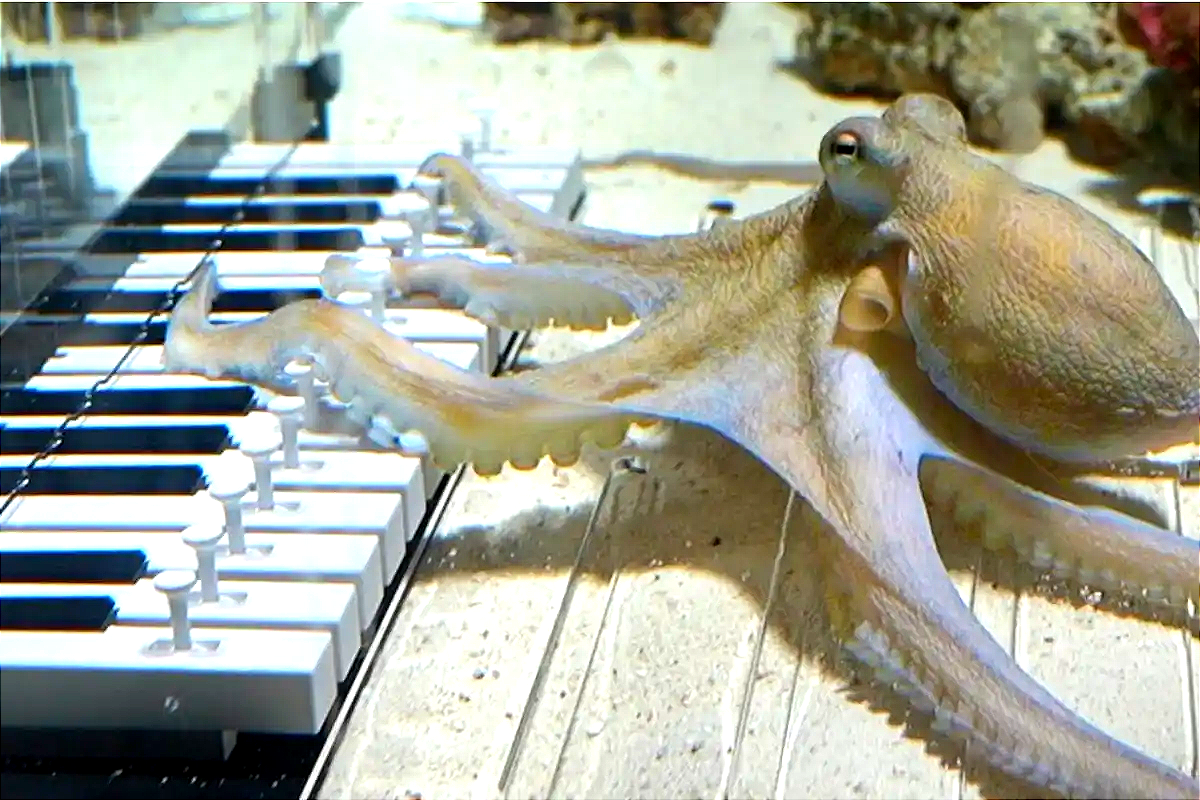During World War I the UK banned landscape painting

With the outbreak of the First World War, the British people grew paranoid that undercover German agents were infiltrating the nation, and the notion that artists might be spies drew some of its credence from none other than Robert Baden-Powell, founder of the scouting movement. Baden-Powell revealed how he and other British spies on the continent had posed as artists and disguised their plans of forts, harbours and industrial areas as innocent sketches of stained glass windows or ivy leaves. With the declaration of war in August 1914, the Defence of the Realm Act made it illegal to make "any photograph, sketch, plan, model, or other representation of any naval or military work, or of any dock or harbour, or with the intent to assist the enemy, of any other place or thing." The society painter and Royal Academician John Lavery was arrested for painting the Fleet at the Forth Bridge. (via Cambridge University)
He solved a famous math problem, turned down a $1 million prize and then disappeared

On a cold day in November, a man living quietly in Russia posted a paper to a public server that was the foundation for one of the most important math proofs in over a century. The paper was the first of three published over the next year solving the long-standing Poincaré conjecture, a hypothesis posed nearly a century earlier by Henri Poincaré. In 2006, mathematicians John Morgan and Gang Tian published a 473-page paper showing that Perelman's work did in fact prove the elusive conjecture. Perelman was offered the prestigious Fields Medal and the Clay Millennium math prize, which came with a $1-million award. He turned them down, resigned from his position at the Steklov Institute in 2005 and has since ferociously avoided the limelight. It's unclear whether he is still working on math in his St. Petersburg apartment, where as of the early 2010s, his neighbors said he was caring for his elderly mother. (via LiveScience)
A Swedish musician bought an octopus and taught it to play the piano in six months

Swedish musician Mattias Krantz rescued a live octopus from a fish market, which he named Tako after the Japanese takoyaki dish. He rescued the animal in order to conduct an experiment to see if he could teach it how to play the piano, sharing his findings and failures on YouTube. After six months of trial and error, bonding, and training, Krantz developed an aquatic pull-lever keyboard for Tako to play on and jam along as Krantz played the guitar. First, he was able to create a waterproof keyboard that Tako could play by pulling levers that would push down the keys. Secondly, and arguably more difficult, was teaching and coaxing Tako to play his new instrument. Krantz tried to use lighted keys, fake crabs, and vibrations in his tank, but it was a struggle to get Tako motivated to pull a lever to hit a minor key much less develop any sort of melody.(via Upworthy)
Hi everyone! Mathew Ingram here. I am able to continue writing this newsletter in part because of your financial help and support, which you can do either through my Patreon or by upgrading your subscription to a monthly contribution. I enjoy gathering all of these links and sharing them with you, but it does take time, and your support makes it possible for me to do that. I also write a weekly newsletter of technology analysis called The Torment Nexus.
There is a competition to see who can hold a giant stein of beer the longest

It's Oktoberfest in New York City and I’m standing with Kim Planert, a UPS driver from Ohio. We’re at Rumsey Playfield in Central Park, beneath London plane trees and a cerulean September sky. All around us is the requisite pageantry of the world’s foremost beer bacchanal: lederhosen bros, immodest dirndl cleavage, and polka music. Planert is 71 years old and his costume is relatively understated compared to some of the more committed revelers in the crowd: checkered blue-and-white Tyrolean hat, oversized Hofbräu T-shirt, and cargo shorts. But Planert is not here just to binge on lager and wurst. For the fourth year in a row, he is competing in the Hofbräu Masskrugstemmen National Competition. Masskrugstemmen is the German name for the increasingly popular sport of steinholding — where participants try to hold a five-pound glass of beer at arm’s length for as long as they can. (via Outside)
This 16th-century lawyer defended rats who were on trial for destroying crops and won

Barthélemy de Chassenée was a French jurist who practiced law in Autun in 1506 and became crown attorney of the Autun baillage in 1508. There, he made his reputation as a criminal lawyer by his eloquent defense of a group of rats who were put on trial for destroying the barley crop of the province. In view of the bad repute and notorious guilt of his clients, Chassenée was forced to employ all sorts of legal shifts and chicane, dilatory pleas and other technical objections. He urged that inasmuch as the defendants were dispersed over a large tract of country, a single summons was insufficient to notify them all. At the expiration of the considerable time which elapsed before this order could be carried out, he excused the non-appearance of his clients on the ground of the length and difficulty of the journey, and the perils which attended it owing to the unwearied vigilance of their mortal enemies, the cats, who watched all their movements, and with fell intent lay in wait for them at every corner and passage. (via The Atlantic)
Here's what you get when you order a smoked apple dish that costs $400

Acknowledgements: I find a lot of these links myself, but I also get some from other newsletters that I rely on as "serendipity engines," such as The Morning News from Rosecrans Baldwin and Andrew Womack, Jodi Ettenberg's Curious About Everything, Dan Lewis's Now I Know, Robert Cottrell and Caroline Crampton's The Browser, Clive Thompson's Linkfest, Noah Brier and Colin Nagy's Why Is This Interesting, Maria Popova's The Marginalian, Sheehan Quirke AKA The Cultural Tutor, the Smithsonian magazine, and JSTOR Daily. If you come across something interesting that you think should be included here, please feel free to email me at mathew @ mathewingram dot com



